Issue No.20 / December 16-31,2015
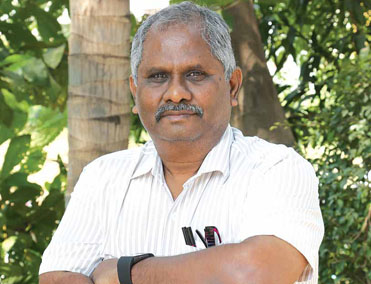
“Let there be charity, so that other people can share my family’s prosperity,” these were some inspiring words from P S Govindaswamy Naidu, Founder of the prestigious PSG Institutions. To take one back into history, nine years before an independent India emerged, this thought-seed was planted to further the cause of education and the first polytechnic was started. That was the beginning and the acorn today is a magnificent oak tree of excellence in learning.
PSG’s Philosophy: Misery shared is misery halved. Joy shared is joy doubled. But knowledge shared is knowledge trebled.
PSG Institute of Management or PSGIM is a valuable member of the PSG family of institutions. PSGIM in its earliest avatar was a department and part of the PSG College of Technology. Its genesis was in 1965, and it later metamorphosed into a full-fledged institute in 1994. The 50-year pedigree makes it one of the pioneering management education initiatives in the southern part of India. Coimbatore city, which is often referred to as the “Manchester of South India” due to its cotton production and textile industries, provides a great environment for PSGIM to nurture its status and stature. The entrepreneurial buzz has truly made the city amongst the fastest growing in India. Apart from the strengths of the pump and textile sectors which the city traditionally has had, Coimbatore is also emerging as an educational and medical hub of India.
Corporate Citizen caught up with the Dr R Nandagopal, Director of this prestigious institute, who took us through the rich history of this institute, its students, the institute’s prestigious accreditation, vision, while also touching upon his personal space. Dr R Nandagopal, Director, PSG Institute of Management (PSGIM) has over 30 years of experience in academics, consulting for governments and policy making. He has been the Director of PSGIM for the past 15 years and was instrumental in making the PSGIM brand a global and vibrant one. An avid researcher and an author, he has over 70 papers to his name in nationally and internationally acclaimed publications and has authored 12 books on finance, management and allied subjects. A passionate teacher, an active participant and a contributor in academic and policy initiatives, Dr Nandagopal is currently Chairman of the South Asian Council of Accreditation for Business Schools and Program, one of the many prestigious positions he has held over time. He has held various positions as President, Secretary and Chairman for various management institutions of repute like the Coimbatore Management Association and Coimbatore Productivity Council. His works have received global recognition and he has many awards to his name. Some of them include ‘The Best Management Teacher Award’ in Strategic Management in the year 2009. He has been awarded Fellow Membership by All India Management Association in 2007. He won the British Council Fellowship to attend the Advanced Management Program at University of Leeds, UK in 1988 and earlier was awarded the UGC Research Fellowship for his PhD at the University of Madras in 1981.
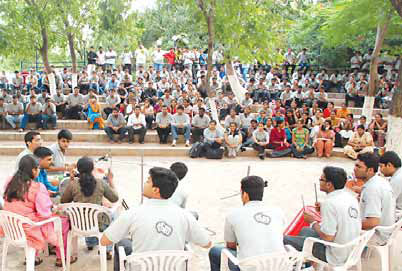
The PSG Institute (PSG and Sons’ Charities) started in the year 1926, but the Sarvajana School was started in the year 1924. In those days, Peelamedu village was situated outside Coimbatore city and local children had to travel eight-nine km daily to reach the closest educational institution. Due to lack of transport they had to walk all the way to reach the college. There were Christian Missionary schools in which it was difficult for students to get admission. There were four-five elite schools in Coimbatore then, and in those schools, poor children who belonged to the lower strata of the society were not given preference. Hence, the elders of the village decided to come together, on Deepavali day and decided to start a school for themselves, with the view that the school would not cater or restrict admissions to any caste or creed or anything of that sort. They named this school as “Sarvajana School.” In 1924, the construction of the school began. The leading family of the area, called the PSG family, came forward and contributed money and some land. Other villagers also chipped in with some money. In 1924-25, the construction was completed and the school was started. The people requested the PSG family to take over the management of the school. Th us, on 25th January 1926, the Sarvajana School came under the PSG Charitable Trust. The uniqueness of this trust was that they divided the property into four brothers and all of them said they will contribute one-fifth of the share, which was about RS.2, 01,116, then. Later on, the RS.2, 01,116 was not given as cash or land, but was given as a commercial property, in the form of manufacturing equipment. Coimbatore, the Cotton City, had rich soil, but there was no water. Hence, they had to dig down to draw water. Thus, it was taking a lot of time and money in developing agricultural motor and implements. They also had a small textile workshop to maintain agricultural and textile implements. That property was given to the Trust. On that day itself they wanted sustainability of the Trust so that the money generated can be contributed to the school. Thus the industrial institute was started.
The institute then started diploma certificate courses in certain areas such as electrical, carpentry and so on. During the Second World War, there was a lot of demand for the electrical and technical requirements. The Government then came forward to fund the institutions. The funding was used to establish a polytechnic institute. Thus courses in electrical and textile were started. They developed the manpower and started using it. On the day of Independence, they decided to start an Arts and Science College. Thus, from technical to polytechnic, they went to start Arts and Science College. At that point there was no Arts college in the entire Kongu region at Coimbatore. The family also decided to upgrade technology, and so sent their sons to UK for higher studies. At that time they also owned a textile mill. So they sent one son to major in textile and the other to manage the industry institute, to study electrical. Prof Damodaran, his son, who went to study electrical engineering to the UK, got stuck due to the Second World War then, and hence couldn’t return immediately. He came back to India after pursuing his mechanical and electrical engineering. He was keen on developing the technological industry here, but more than that he wanted to develop manpower for the industry, who are technically trained, and was very clear in starting an engineering college. In 1951, they started the engineering college and G R Damodaran, founder of PSG College of Technology, became the first principal of the college. He is one of the celebrated educationists of Tamil Nadu, who has contributed a lot to the education sector. He was also the Member of Parliament. Having studied six years in UK, all his knowledge and experience of the UK education system was introduced here, and the students who belonged to the weaker section of the society got education here.As we all know, Coimbatore is a city of entrepreneurs. In those days, PSG was manufacturing lathes. As one completes the course, the student was given a lathe machine, and he would repay an installment and start his own business. This is how he encouraged entrepreneurship and small and medium business (SME) began. Small went to become medium and they all started doing well. But then they came back saying they didn’t know other areas of management such as finance, marketing and needed help in those fields. Thus in 1965, PSG started a management programme, with the help of the Government of India and started giving out a diploma certificate for working professionals, who would come and study here. From 1971 onwards, we started a fulltime MBA programme. Recently we completed our 50th year in management education.
“Since day one, our philosophy has been to give education to a lot of students. We’ve always believed in giving an opportunity to a lot of students. About 70-80 percent of the students are from Coimbatore itself. At the beginning of every year, we do a puja just for students to understand the purpose of rituals”
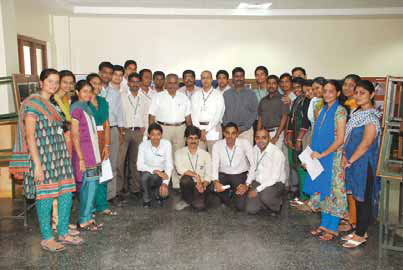
We get students from all over the country, but mainly from Southern India. I would say 90 percent of our students are South Indians. Since dayone, our philosophy has been to give education to a lot of students. We’ve always believed in giving an opportunity to a lot of students. About 70-80 percent of the students are from Coimbatore itself. In the last ten years, things have changed, but if you see still not many of them get an opportunity to go outside India and study, since affordability is an issue. For instance, it is difficult for a textile mill worker’s child to purse education. About 30-40 years ago, we’ve given students of the weaker section of the society a lot of concession and consideration, even in the marking system, but now even in the engineering college it has become mandatory that the Government admits. So they have State counselling system, where we don’t have a say in admission process, but even then a lot of weaker sections of the society come and join us. At the beginning of every year, we do a puja just for the students to understand the purpose of rituals. The college schedule is pretty tight for the students. There are students who come from very poor families, where the parents are working as coolies earning about Rs. 200-250 a day. The students’ lifestyle is such that they start their day with just a cup of tea and a bun from a small shop and go to work. For lunch, they buy something little, and in the night they cook. If you look at them, they actually get only one full meal a day. When there is left over food at night, they add a little water and buttermilk to it and have it in the morning. Some of them don’t even have that in the morning. When we found that the students are not having breakfast, which is very essential for their health, we decided to come up with a breakfast scheme. This scheme is funded by the management and MBA students. About 100 students have breakfast in the morning at the institute. The breakfast scheme is for Saravajana students.
A lot of companies from the manufacturing sector, banking, IT, telecom are coming forward for placements. Companies like TCS, HCL, ICICI Bank, IDBI Bank, Coca-Cola, ITC Ltd, Airtel, Vodafone, L&T Infotech, Idea, Wipro, Nestle, SAP, and a lot of local banks such as Karur Vysya Bank come over to the campus to recruit students. Some of the leading auto companies also come over. We have 100 percent campus placements, but not 100 percent of students are placed, because 50 percent of the students are from family businesses. So we give placements to only those students who need it. Not all students opt for it. Again, in Tamil Nadu, most of them are entrepreneurs--so some of them start a cake-making business, open a website, hire two three people and carry out the business, in the first year of the programme itself. Meanwhile, if someone who is interested in running a small canteen, from the college premises itself, starts off and eventually hands over the canteen to his juniors. For instance, if the canteen is being auctioned, at the end of the year, for Rs.one lakh and there is a bid for Rs.1, 25,000, the senior student makes a profit of Rs.25,000. Thus entrepreneurship is encouraged in a big way.
“We were the first college in India to get an accreditation from ACBSP, in 2010. Because of the accreditation, we have about 30 members in India and neighbouring countries, so we formed an association, which has different regions like Asia, South-East Asia and so on. We formed the tenth region, where India is active”
The average package is about Rs.6.5 lakh per annum, highest being about Rs.12 lakh per annum.
Yes, there are opportunities for students to go abroad. Some of them go to the US and UK for a summer exchange programme. Some of our students have also got job opportunities abroad, in automobile companies. In fact we have a strong collaboration with the Hof University in Germany. Overall, too, a lot of investments are happening by collaborating with universities abroad, as ‘Make In India’ project is happening in full swing. Germany is also an important territory after our Prime Minister visited Germany last year, as a result of which a lot of MOUs are also being signed. About 27 students go to Germany, study there, since they get an exposure to the language, culture, come back and take up jobs in German companies. So this is an exchange programme where students get to go to Germany for a semester.
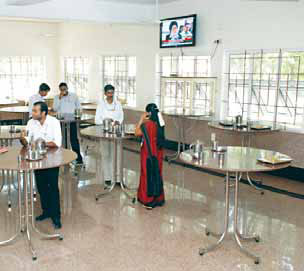
Students will have to apply. We prefer those who know German language. Our German counterparts also play a role in the selection. About 27 students go to Germany and 10-15 go to the US. Thus 30-35 students get an opportunity, out of which about 20 get placed in companies in Germany or in German companies in India. Thus, job opportunities are really good.
Management programmes are globally accredited by any of the five respectable accreditation agencies in the world, namely, EFMD (European Foundation for Management Development), AMBA (The Association of MBAs), AACSB (The Association to Advance Collegiate Schools of Business) and ACBSP (Accreditation Council for Business Schools and Programs). All top business schools are accredited by AACSB. AACSB, AMBA, ACBSP and EQUIS or EFMD are the most prestigious ones. In India, today about 30 schools are globally accredited by either ACBSP, or AACSB. Indian Institute of Management Calcutta, Indian School of Business, Hyderabad and T A Pai Management Institute, Manipal are accredited by the AACSB. We are also in the race, working for the past eight years on AACSB. This is one of the most prestigious accreditations. We were the first college in India to get an accreditation from ACBSP, which is also another prestigious accreditation. So currently about ten schools are globally accredited from India. These include XIME, Bengaluru, Great Lakes Institute of Management Chennai and so on. Our institute, PSG Institute of Management, Coimbatore, got the first accreditation in 2010. Because of the accreditation, we have about 30 members in India and neighbouring countries, so we formed an association/region, where the association has different regions like Asia, South-East Asia and so on. We formed the tenth region, where India is active. I was representing the tenth region called ‘South Asian Council of Accreditation for Business Schools and Program’ and was the Founder President. Because of all these accreditations, the PhD faculty is very important. Almost all the accreditation agencies insist on the quality of research. That’s the reason why we encourage more PhDs.
Unlike other institutions like Arts and Science or Medical, the students for the management programme or the MBA programme, are diversified. A good learning environment depends on how diversified the students are. Hence we encourage students to come from regions beyond Coimbatore. The MBA programme is affiliated to Anna University. We also carry out the Post-Graduation Diploma certificate or the PGDM programme, given by the University, approved by AICTE.
“We would like to be a global player. Sadly I feel that in India, family businesses are not given much importance. We must look at how to manage family businesses in India, build professionalism, overcome the problems of property divides, and keep family relationships strong. Keeping that in mind, we would like to develop more and better courses for family businesses to grow”
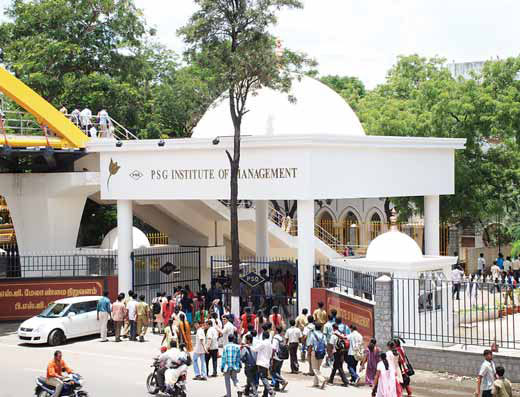
We carry out an MBA, PGDM and a part-time MBA programme. In 1965, we had started the part-time MBA programme which is still continuing. This is a three-year programme, which is conducted in the evenings. This programme is for working professionals, who do not get placements. Most of the professionals come through the company they work for, where the company sponsors them. Hence we cannot place them. Different streams offered in the management programme include finance, marketing, human resource development, operations, systems and international business. The other stream which is unique is a specialization in family business. Coimbatore being a hub for small and medium enterprises, a lot of family businesses are here. About 25-30 percent of our students come from family businesses, for instance, owners of some of the big brands in Coimbatore, such as Sri Krishna Sweets or Annapurna, studied in our college. The second and third generation children, from the family business, study in our institute, go back and carry on with their family business. Hence, we place more emphasis on family businesses, like we teach them various aspects of how to structure the family business and how to run it professionally. We also have a research centre on entrepreneurship and workshops on family business on how these family businesses are run. One unique thing is that we have a mentoring system. Our strength is our alumni. Since we are an old institution, a lot of our alumni have become mentors to our students. At the beginning of the year, a panel of alumni come forward to mentor the current students. The alumni meet the students once every 15 days, give them counselling, confidence and more knowledge and exposure. Some of our alumni are associated with the Rotary Club and other industry bodies. They often take our students there to help them network which,in turn, gives them more exposure, professionally. This also gives them good experience and confidence. Eventually, these mentors and students come close and more than mentor-mentee, they become family friends. Thus good relations are maintained. We do mentoring at three stages-alumni mentoring, senior mentoring and faculty mentoring. We try to attach a particular mentor to the roll numbers and the interaction begins. Today with technology advancement, with emails and WhatsApp, they are able to coordinate, connect and communicate better. Similarly, faculty mentoring is also given a lot of importance. Thus mentoring plays a very important role in shaping the future of the students. Classroom sessions are just about 20-25 percent but shaping students to give them more exposure from outside the classroom, to get industry perspective, is very important.
We have 35 full-time faculty members who are on the rolls of PSG. About 25 of them are PhDs and remaining 10 are pursuing their PhDs. We always try to get PhDs at the entry level but we also take some good practising managers. Out of 35 full-time faculty members, 20 of them have industry experience ranging from 5-15 years. They are academically very strong. Out of the 35 again, 15 of them are recognized PhD guides, who also guide PhD students. We have about 45-50 students who are pursuing their PhDs. We will add more faculty as and when needed, this year and will mostly prefer taking PhDs only. The PhDs at our institute are involved in teaching and conducting research. During our faculty forum evaluation, we tell them that every faculty should teach certain number of courses, as in, every professor has to teach four courses, associate professors have to teach five courses, assistant professors have to teach six courses, a year. While the professor is only given four subjects, but he/she also has to contribute to research by taking up a research project.
We have about 45 students (per section) doing their MBA at PSGIM. AICTE permits 60 students, but we prefer having 45 students, so that we can give them individual attention. Today, the management quota will go through the Management Aptitude Test (MAT) and other tests. In the case of Government quota, about 20,000 students appear in state and their first choice is PSG. In the last 10 years, out of top ten, seven-eight students get to come to PSG, not just in open category but all other categories as well. When counselling starts, we first complete admissions of most backward category and schedule class category such as SC/ST. By the end of the afternoon, we complete the entire admission process. Out of about 20,000 applications, the best 90 are selected, under government admissions. We get about 800-1000 applications for the PGDM course, for whom we conduct group discussions and personal interviews.
“We have about 45 students (per section) doing their MBA at PSGIM. AICTE permits 60 students, but we prefer having 45 students, so that we can give them individual attention. Out of about 20,000 applications, the best 90 are selected, under government admissions. We get about 800-1000 applications for the PGDM course”
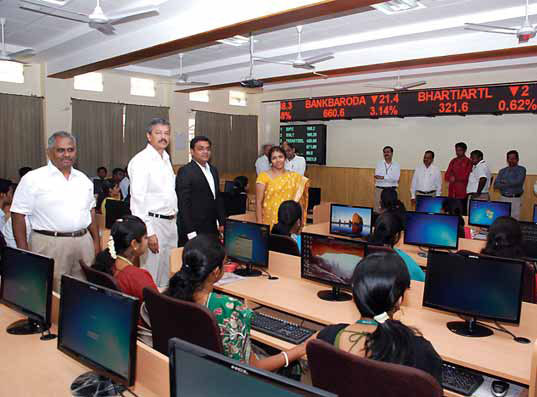
I took over as the Director of the institute in the year 2000. After I took over, first we decided to go for international accreditation. We are one of the first few institutions in India to think about international accreditation. Next, we went for a different methodology in teaching. We now carry out an ALPS (Active Learning Program Service) programme, where we take the students to the foothills of Western Ghats where we have 25 acres of land. The ALPS programme is located at Annaikatti, in a green serene location, which is pollution free. The place is 30 km away from the city and exclusively used for the outbound training for the students of the institute. We have physically created an infrastructure basically to give them a learning environment, more like military training, where different games and activities like climbing the wall, or mountain climbing, river crossing basically is done to initiate teamwork amongst students. There are a lot of simulative management games there. Every weekend, students in batches are taken. So in every semester, for about 30 hours, students have to go through this exercise, reason being, they get hands on experience and this is also treated like a course. For instance, there are activities like crossing over from one area to the other, where they are given few types of equipment, and without touching the ground, they’ll have to cross over. These exercises are similar to the off site activities. These activities involve a lot of teamwork, where they discuss on how they can do the task in that particular time frame. This programme focuses on modifying the behaviour of the participants with hands on experiential activities, practising which in the formal classroom arrangement is difficult and may also be less efficient. In ALPS, the students are more in an informal setup which allows them to interact freely with the facilitator and their colleagues. They explore themselves with the experience of their own activity. ALPS facilitate to identify the qualities of themselves that stays with them for a long time than what has been said by others about them. We have about 30-40 games like these. Since it is located at the foothills of the Western Ghats, they go for trekking, morning walks, which make them physically fit. Our faculty is also trained for this purpose. We also have yoga for the students in the institute. In the last four years, we have won the Innovation in Teaching Award, from the Association of Indian Management Schools, for carrying out the ALPS and other programmes. Since the past five years, we are continuously getting the gold medal. Also, we make the students realise the importance of money by giving each of them Rs.30 for two days and we see how they manage with this money. The students take up different jobs like a driver, to earn money, while also studying. We encourage them to earn money so that they get an experience. We also encourage students to go to an international school in US, Europe or Germany for better exposure. Every student doing an MBA or PGDM undergoes three-week training in any one of the universities. That apart, we introduced the MOODLE soft ware, 15 years ago, where the entire learning management system can be used, starting from giving assignments. After we introduced it, we also encouraged and helped other institutions to adopt it. Today, most of the other institutions are also using this soft ware.
We strongly believe in sharing with the society and so have introduced a course on CSR. In the PGDM curriculum, there are four modules, where the first module is to make them understand on what is sharing, collecting books for the poor children and donating blood, so that they understand basic values. In the second module, the student organizes programmes like forming teams and conducting CSR activities. In the third module, he works with an NGO. Thus, at each level, there is a CSR initiative. In the last five years, we’ve also got an award for the best CSR institute by Association of Indian Management Schools. We started a faculty forum, 15 years ago, where all our faculty members sit together three days in a year, somewhere outside the campus, and discuss about our strategic plan and evaluate the past year. That’s how we actively involve our faculty members. We also have a trading lab where the MBA students get live experience of trading in the stock market. We have 40 terminals where they can trade. The huge boards display the price movement of the stocks, where they carry out mock trading sessions.
No, the Government doesn’t support us. We are self-sufficient or I would say more than sufficient.
The fee for the MBA programme is prescribed by the Government. The fees for the PGDM course would be about Rs.4.5 lakh, for two years, which doesn’t include boarding. So these are only the tuition charges.
Yes, the problem is that most of the girls in Tamil Nadu are married off immediately after their graduation. I would like to have more and more girls come to the institute and study for a bright career since they are highly competent and intelligent. In our institute, luckily the ratio between girls and boys, this year, is 50:50. From 10 percent, we have come to 50 percent, over the years. I would like parents of the girl students to encourage them to come forward and study and have a bright career. If the girls belong to a business family, let them study here, so that I can train them to do well in the family business. Parents should understand that girls can become independent only if they are educated.
“At the beginning of the year, a panel of alumni come forward to mentor the current students. The alumni meet the students once every 15 days, give them counselling, confidence, knowledge and exposure”
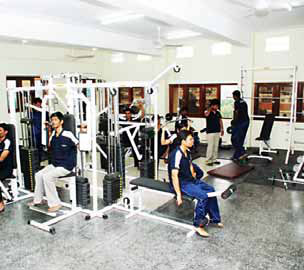
I hail from a typical middle-class family. My father was an accountant in a textile mill. We are four brothers. My elder brother is in Detroit, a PhD from IIT Delhi, while I am the second brother. My younger brother, who is the third one, is an entrepreneur and has his own industry. My fourth brother is a mechanical engineer, lives in Dallas. I did my schooling and college from Coimbatore and later pursued my M.Com. Later, I did my PhD from Madras University. After my PhD, I joined Loyola College, Chennai, for about six to eight months and joined the Institute of Public Enterprise (IPE) in Hyderabad, mainly a research institute, as Assistant Professor and Program Director for MBA. After joining the institute, I became the Program Director in six months of joining the institute. I was there for seven years. I then moved back to Coimbatore, joined here as faculty. At that time, the MBA programme in PSG was offered by the department of Arts and Science. So the management felt there should be a separate institution giving certain freedom to develop itself. So I joined the college and one of my seniors from IPE, named Balaguruswamy, joined as the Director. We started as the institute of management in 1994. When Balaguruswamy left , I took over in 2000 as the Director. I was very active in social service since a long time. My brother was my inspiration, from whom I decided to pursue PhD. Later on, I was trying to get a job but that was getting delayed. I then decided to do MPhil and was employed at Madras University. Because I was from PSG, the professor was very impressed with my academics. In those days, MPhil was a big degree. Luckily I got UGC fellowship. In those days, someone from UGC would draw about Rs.600 per month, with other facilities, so it was a big attraction for me. My wife, who is a senior doctor, wanted me to come back so I decided to return to Coimbatore. She did her medical education from Coimbatore Medical College and got a Diploma in child care from Stanley Medical College, Chennai. At that time, I was in IPE, so she came to Hyderabad to join me, but somehow wasn’t too comfortable there. Hence we decided to move back to Coimbatore. At that point of time, PSG was also looking for someone. Subsequently, she went for MD in Pediatrics to Madurai Medical College and joined as faculty at Coimbatore Medical College. Currently, she is Head of the department of Pediatrics. We have only one son, who is pursuing a five-year Integrated Management Programme in IIM Indore.
We would like to be a global player. Sadly, I feel in India, family businesses are not given too much importance. If you see, more than 80 percent of our industries in India are family run. Industries like Reliance Ltd are family run. If you look at Coimbatore itself, leading entrepreneurs have split due to property reasons. Hence I feel we need more professionalism in managing family business. When there is a partition in the family, there is an issue. So we must look at how to manage family businesses in India, build professionalism, overcome the problems of property divides, and keep family relationships strong. If we do all these, our Indian industry will grow. Keeping that in mind, we would like to develop more and better courses for family businesses to grow. In the future, I feel that PhDs should become the centre for family business.
By Mahalakshmi Hariharan